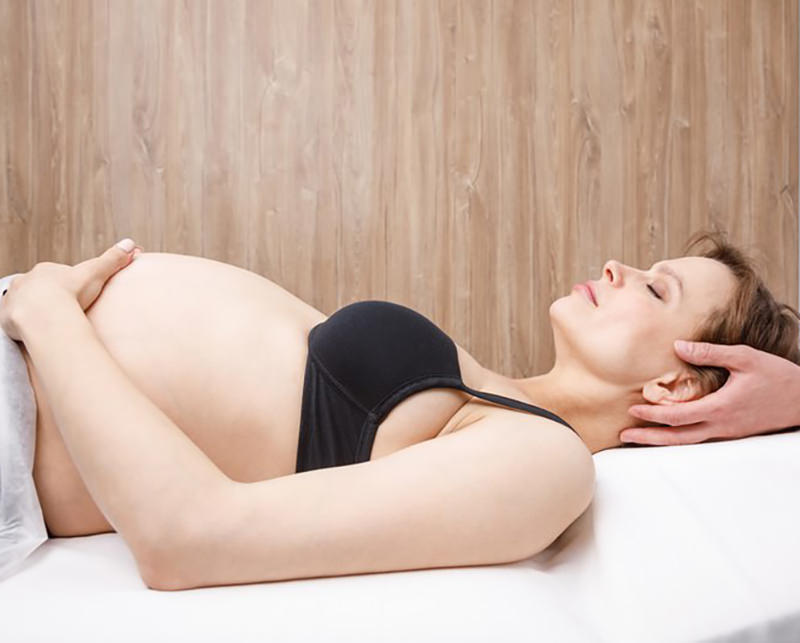Osteopathy and pregnancy | Relieving pain and preparing the body for the arrival of the baby
Pregnant women undergo physical, hormonal and psychological changes for nine months. These changes encourage the onset of certain types of pain, such as lower back pain, sciatica and gastro-oesophageal reflux. Osteopathic treatment during pregnancy helps you to prepare gently for the arrival of your unborn child and to remedy these minor discomforts.
Osteopathy accompanies women throughout their pregnancy
Throughout your pregnancy, an osteopath will help relieve your pain and give you advice on how to prepare calmly for the arrival of your baby.
A consultation during the first trimester is an opportunity for the professional to get to know you. As a preventive measure, they will carry out a postural assessment to avoid as far as possible certain inflammations (lower back pain, sciatica, cruralgia) that are common during pregnancy. This appointment will also provide you with advice on the precautions to take and the postures to adopt.
During the second trimester, certain pains appear (backache, digestive problems, etc.). The osteopath will use the appropriate techniques to relieve these pains and prepare your body as effectively as possible for the big day.
During the final trimester, the practitioner will continue the work that has already been underway for several months. The osteopath can offer you childbirth preparation sessions to optimise the range of your muscles, joints and ligaments and make you more aware of certain muscles, such as the perineum. These consultations are also an opportunity to talk about breastfeeding, the birth process and your post-natal osteopathic care, not forgetting that of your baby!
Osteopathy sessions relieve pregnancy-related discomfort
The main reasons for consultation are:
- Ligament pain, which generally appears around the last trimester of pregnancy. This is because the ligaments gradually stretch and become more elastic (hyperlaxed), leading to pain that can be very severe;
- Sciatica, characterised by pain that radiates from the top of the buttock down the leg;
- Lower back pain or “lumbago”: intense pain in the lumbar vertebrae at the base of the back, characterised by a feeling of being trapped and difficulty performing certain movements.
- Problems with water retention (heavy legs, swollen ankles)
- Gastro-oesophageal reflux disease (GERD);
- Insomnia, which can be caused by the aforementioned pains or by stress;
- Cruralgia: inflammation of the femoral nerve due to contraction of the psoas (hip flexor muscle), which causes pain from the buttock to the foot. They are often linked to the position of the baby, who rests its head on this muscle;
- Hypersalivation;
- Vomiting;
- Constipation.

Frequently asked questions by pregnant women
Is it dangerous to consult an osteopath during pregnancy?
There is no risk in treating pregnant women by a trained professional, unless the family doctor advises against it. Osteopaths use gentle methods and adapt their practice to each stage of the woman’s pregnancy.
Is there a risk to the baby?
The osteopath never puts your health at risk. On the contrary, the manipulations carried out tend to restore mobility to the various structures of your body (pelvis), giving your baby more space.
What happens during a session?
The course of the session is similar to that of a traditional consultation. It follows 4 stages: the medical history (first contact between the practitioner and the patient), the assessment, the treatment followed by some advice and recommendations to ensure that the work carried out lasts.
Should I see an osteopath after giving birth?
In the month following childbirth, it is recommended that you make an appointment with an osteopath to rebalance your body’s structures. Giving birth to a child is an extraordinary act, but one that is also traumatic for your body. The main problems encountered in the post-natal period are relaxation of the perineum, an increase in the size of the pelvis, and even pain during sexual intercourse.
You can also consult an osteopath for your baby at this time.